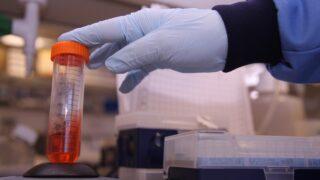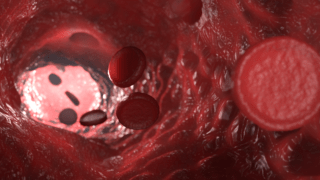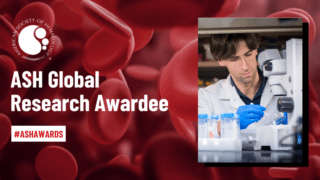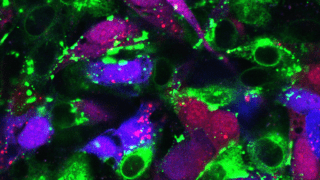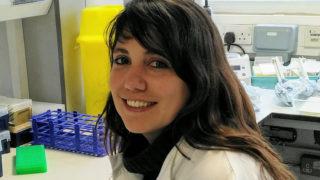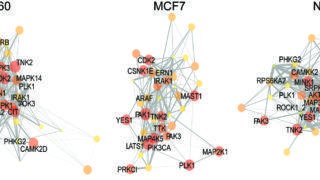Tag: Leukaemia
Search News
Categories
Archives
Mapping the emergence of treatment resistance in leukaemia
28th September 2021
Research led by Barts Cancer Institute, Queen Mary University of London, has identified a new role for a group of cells called adipocytes in contributing to treatment resistance in a type of leukaemia. Published in Nature Communications, the findings broaden the understanding of resistance pathways in blood cancer cells, which is critical for developing novel treatment strategies to improve outcomes for people with leukaemia.
Read moreTackling blood cancer with Blood Cancer UK
10th September 2021
This Blood Cancer Awareness Month, find out about the Blood Cancer UK-funded research projects currently underway at the Barts Cancer Institute, which span from looking at the specific genetic changes that drive blood cancer development, to identifying new treatment strategies to improve the outcomes for patients.
Read moreMiguel Ganuza receives ASH Global Research Award
24th August 2021
Congratulations to Dr Miguel Ganuza from Barts Cancer Institute, Queen Mary University of London, who has been selected by the American Society of Hematology (ASH) to receive the 2021 ASH Global Research Award. Dr Ganuza is one of twelve talented early-career investigators selected for this award.
Read moreUnderstanding the role of the bone marrow in blood cell health and disease
3rd December 2020
Congratulations to Dr Miguel Ganuza from Barts Cancer Institute’s Centre for Haemato-Oncology who is the recipient of a Career Development Award from the Medical Research Council. The award of approximately £1.5 million over 5 years will fund a research project that will investigate how the bone marrow supports blood stem cells and how changes within the bone marrow can drive the development of diseases, such as leukaemia.
Read moreNew and valuable insights into familial myeloid leukaemia
3rd March 2020
Research has identified new genetic features implicated in a type of blood cancer known as familial myeloid leukaemia. The study, published in Nature Communications, offers novel insights into the biology of this inherited cancer, and provides a framework to inform how to more effectively manage at-risk individuals and patients affected by this type of blood malignancy.
Read moreProtein network rewiring in cancer
20th January 2020
Research published in Nature Biotechnology has identified new ways to analyse the complexity of the internal workings of normal cells and cancer cells. The study highlights how genetic changes rewire the biochemistry of cancer cells and may aid in identifying new drug targets specific for a patient’s disease.
Read more
